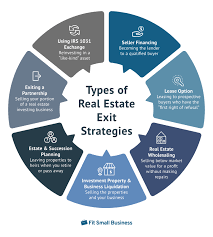The Key to Success in Real Estate: Effective Strategies
Real estate investment can be a lucrative venture, but success in this competitive industry requires more than just luck. To thrive in the real estate market, it’s essential to have well-thought-out strategies that align with your goals and market conditions.
Research and Analysis
Before diving into any real estate transaction, thorough research and analysis are crucial. This includes studying market trends, property values, rental rates, and economic indicators. By gathering relevant data and analyzing market conditions, you can make informed decisions that maximize your returns.
Diversification
Diversifying your real estate portfolio is a smart strategy to mitigate risks and optimize returns. Investing in different types of properties across various locations can help you spread out risk and capitalize on diverse market opportunities.
Networking and Relationships
Building strong relationships with industry professionals, such as real estate agents, brokers, contractors, and lenders, can open doors to valuable opportunities. Networking allows you to stay informed about market trends, access off-market deals, and collaborate with experts who can help you achieve your real estate goals.
Long-Term Vision
Successful real estate investors often have a long-term vision that guides their decisions. Instead of focusing solely on short-term gains, consider the potential for appreciation over time. Patience and strategic planning are key to building wealth through real estate investments.
Adaptability
The real estate market is dynamic and constantly evolving. To stay ahead of the curve, it’s essential to be adaptable and flexible in your strategies. Keep abreast of changing market conditions, regulatory updates, and emerging trends to adjust your approach accordingly.
Financial Management
Savvy financial management is critical for success in real estate investing. Develop a comprehensive budgeting plan that accounts for expenses, cash flow projections, financing options, and risk management strategies. By maintaining financial discipline and monitoring your investments closely, you can optimize returns and minimize potential losses.
In conclusion, effective real estate strategies are the cornerstone of success in this dynamic industry. By incorporating research-driven decision-making, diversification tactics, relationship-building efforts, long-term visioning, adaptability skills, and sound financial management practices into your investment approach, you can position yourself for sustainable growth and profitability in the competitive world of real estate.
Unlocking Real Estate Success: Top Strategies for Investment and Growth
- Which strategy is the best in real estate?
- What are the four main real estate investment strategies?
- What is an example of real estate strategy?
- What is the 4 3 2 1 real estate strategy?
Which strategy is the best in real estate?
When it comes to determining the best strategy in real estate, there is no one-size-fits-all answer. The effectiveness of a real estate strategy depends on various factors, including market conditions, individual goals, risk tolerance, and investment timeline. Some investors may find success with a buy-and-hold approach for long-term appreciation, while others may prefer a fix-and-flip strategy for quicker returns. Ultimately, the best real estate strategy is one that aligns with your objectives, resources, and expertise, and it may require a combination of different tactics to achieve optimal results in the ever-evolving real estate landscape.
What are the four main real estate investment strategies?
When it comes to real estate investment strategies, there are four main approaches that investors commonly utilize to achieve their financial goals. The first strategy is appreciation, where investors aim to profit from the increase in property value over time. Another strategy is cash flow, focusing on generating regular income through rental properties. Additionally, there’s the fix-and-flip strategy, involving purchasing properties below market value, renovating them, and selling at a higher price for a quick profit. Lastly, the buy-and-hold strategy involves acquiring properties with the intention of holding onto them long-term to benefit from rental income and potential appreciation. Each of these strategies offers unique opportunities and challenges, catering to different investment objectives and risk tolerances in the dynamic real estate market.
What is an example of real estate strategy?
An example of a real estate strategy is the “Buy and Hold” approach, where an investor purchases a property with the intention of holding onto it for an extended period. This strategy involves renting out the property to generate rental income while benefiting from long-term appreciation in value. By strategically choosing properties in high-demand locations with growth potential and securing stable tenants, investors can build equity over time and create a steady stream of passive income. The Buy and Hold strategy is popular among investors looking for a relatively low-risk investment option that offers both short-term cash flow and long-term wealth accumulation through property ownership.
What is the 4 3 2 1 real estate strategy?
The 4 3 2 1 real estate strategy is a popular approach used by some investors to build wealth through property investments. In this strategy, the numbers represent different steps: 4 refers to buying four properties, 3 signifies renting out three of those properties while living in one, 2 stands for holding onto two properties as long-term investments, and 1 represents selling one property to generate capital for future acquisitions or other financial goals. By following this structured plan, investors aim to create a diversified real estate portfolio that generates rental income, long-term appreciation, and opportunities for further growth and expansion in the real estate market.
Tags: adaptability, diversification, economic indicators, effective real estate strategies, financial management, long-term vision, market trends, networking, property values, real estate investment, real estate strategies, relationships, rental rates
